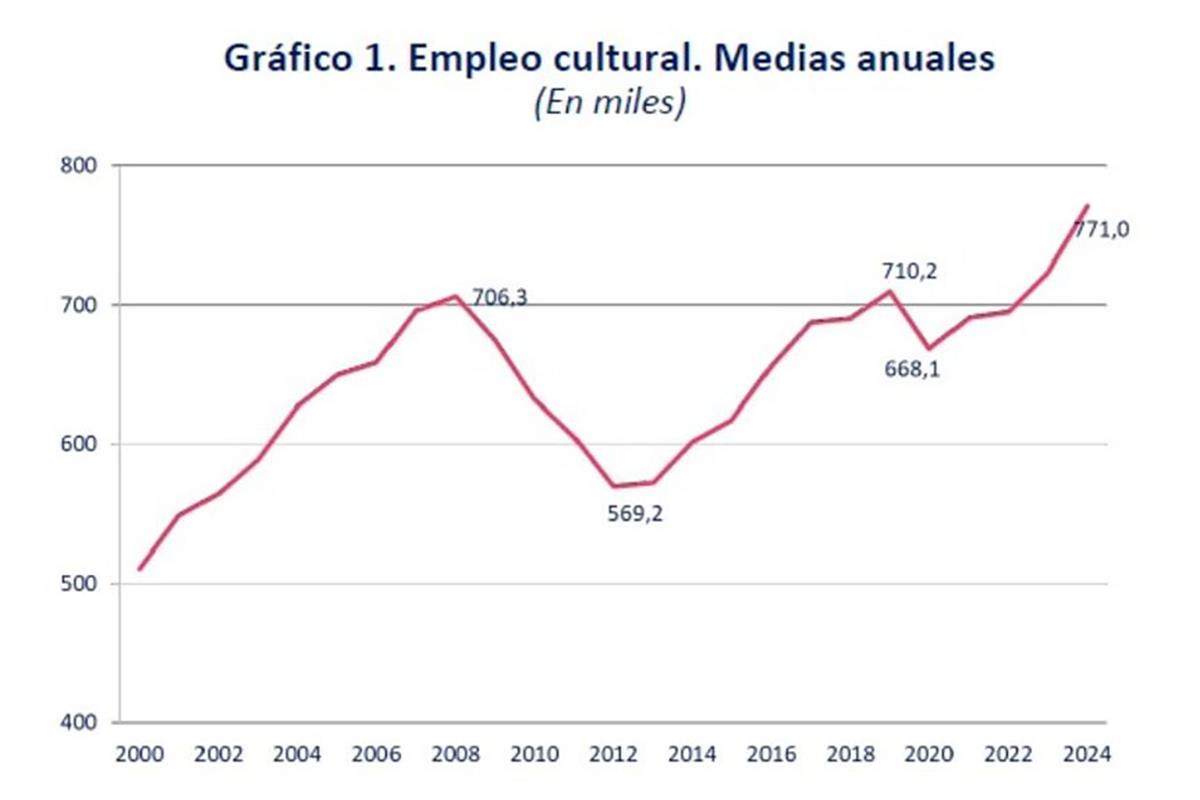
Cultural employment grew 6.6% in 2024 compared to the previous year, reaching a total of 771,000 people, 3.6% of total employment in Spain. This increase consolidates the recovery of the cultural sector after the COVID-19 pandemic, as it already exceeds the figure recorded in 2019 by 8.6%. The growth is sustained in the following years: the variation compared to 2020 is 15.4%, 11.6% compared to 2021 and 10.9% compared to 2022.
This is reflected in the specific use made by the Ministry for Culture of the data on employment in certain economic activities and occupations linked to the cultural sphere collected in the Labour Force Survey, an official statistic belonging to the National Statistical Plan produced by the National Statistics Institute.
In terms of the quality of employment in the cultural sector, the increase in permanent contracts as opposed to temporary contracts from 2022 stands out. In this period, permanent contracts increased 19%, while temporary contracts decreased 9.1%. In absolute terms, this means that there are 33,300 more permanent contracts than in the previous year. It also points to the high full-time employment rate of 88.6%, compared to 11.4% part-time, a constant over the last three years.
In the section analysing the statistics in terms of sex, the increase in female employment in 2024 stands out, when a total of 22,400 women took up jobs in the sector. In terms of age group, the increase in cultural employment among 16-34 year olds was 19,900 jobs more than in the previous year. This also underlines that cultural employment is characterised by above-average educational attainment, with a higher education rate of 71.2%, compared to the national rate of 46.7%.
The data refers to employment in companies engaged in cultural activities, such as publishing, libraries, archives, museums, film, video, radio and television, arts and entertainment, among others. Alongside this, employment corresponding to occupations with a cultural dimension - writers, artists, archivists or librarians - is also considered.
Non official translation





